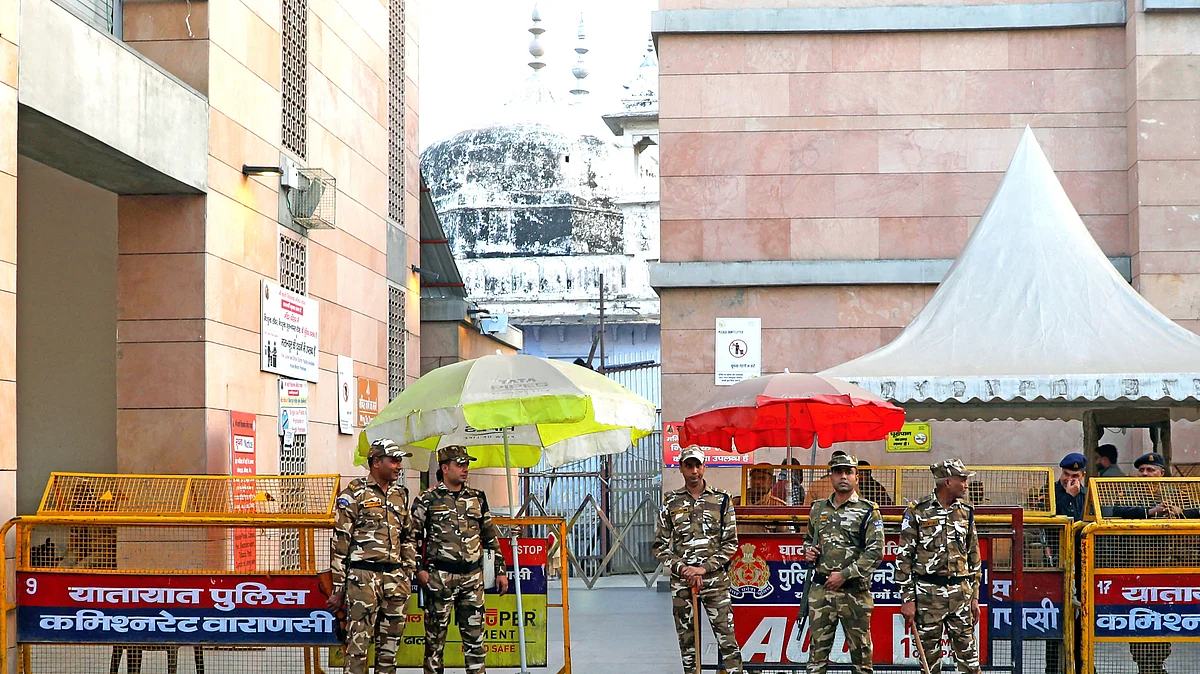No more suits under Places of Worship Act until further notice from SC
Also no effective interim or final orders, including those for surveys, to be passed in pending suits

The Supreme Court on Thursday, 12 December, ruled that no further suits may be registered in the country against any place of worship until further orders from the Court, while asking the Union government to file replies to the pleas in four weeks and granting all parties four weeks to file rejoinders thereafter.
Additionally, it directed that no effective interim or final orders, including those for surveys, should be passed in pending suits such as those involving the Gyanvapi Mosque, Mathura Shahi Idgah, and Sambhal Jama Masjid.
The interim order was issued during hearings on petitions challenging the Places of Worship (Special Provisions) Act, 1991. A special bench comprising Chief Justice of India Sanjiv Khanna and justices Sanjay Kumar and K.V. Viswanathan issued the following directive: “As the matter is sub judice before this Court, we deem it appropriate to direct that while suits may be filed, no suits would be registered, and proceedings undertaken until further orders of this Court. We also direct that in pending suits, the Courts should not pass any effective interim or final orders, including orders for surveys, until the next date of hearing.”
This significant intervention by the Court comes amidst growing concerns over the increasing number of suits claiming ownership of medieval mosques and dargahs. Notably, a survey order by a trial court concerning a 16th-century mosque in Uttar Pradesh’s Sambhal triggered violence in November, resulting in at least five fatalities.
However, the Court declined to stay ongoing proceedings in pending cases related to places of worship, such as mosques and dargahs. It also instructed the Union government to file its counter-affidavit in petitions challenging the Places of Worship Act within four weeks. The affidavit is to be uploaded online for public access.
The bench was informed that 18 suits are currently pending across the country against 10 mosques or shrines. During the hearing, justice Viswanathan addressed solicitor-general Tushar Mehta, stating, “Mr SG, the plea challenges the Constitutionality of the Act. There is a larger question...one of the arguments you have to address is that Section 3 could be seen as an effective reiteration of Constitutional principles. Civil courts cannot compete with the Supreme Court, hence the necessity for a stay.”
The Court is considering multiple petitions questioning the Constitutional validity of the 1991 Act, which prohibits altering the religious character of places of worship as they stood on 15 August 1947.
The lead petition, filed in 2020 by BJP leader Ashwini Kumar Upadhyay, prompted the Court to issue a notice to the Union government in March 2021. Petitions challenging the Places of Worship Act were filed by others as well, including the Vishwa Bhadra Pujari Purohit Mahasangh. Other similar petitions challenging the Act have since been submitted.
The Jamiat Ulema-i-Hind also filed a writ petition for enforcing the Act, arguing that even entertaining challenges to the law could create fear among Muslims regarding their places of worship, particularly after the Ayodhya dispute.
Several political parties, including the CPI-M (Communist Party of India-Marxist), IUML (Indian Union Muslim League), DMK (Dravida Munnetra Kazhagam), RJD (Rashtriya Janata Dal) MP Manoj Kumar Jha, and NCP (Nationalist Congress Party) MLA Jitendra Awhad, have filed interventions supporting the Act.
The representative of the erstwhile royal family of Kashi (Varanasi) has also filed a petition. Despite multiple extensions, the Union government has yet to submit its counter-affidavit. The Act has recently attracted significant public attention following the violence linked to the Sambhal Jama Masjid survey.
The Court appointed advocates Kanu Agarwal, Vishnu Shankar Jain, and Ejaz Maqbool as nodal counsel to prepare compilations on behalf of the Union, the petitioners, and supporters of the Act.
The 1991 Act aims to maintain the status of religious structures as on Independence Day (15 August 1947), barring courts from entertaining disputes about their character. Cases already pending in courts were also required to be abated under its provisions. However, the Act made an exception for the Ram Janmabhoomi site in Ayodhya, which allowed courts to hear that matter.
The Supreme Court relied on the Act in its 2019 judgment granting the Ayodhya site to the deity Ram Lalla, but reaffirmed that similar cases for other sites could not proceed.
The Act is now central to ongoing suits filed by Hindu plaintiffs claiming ownership of properties housing Muslim mosques, alleging they were built on ancient temples. Cases include those related to the Shahi Jama Masjid in Sambhal, Gyanvapi Mosque in Varanasi, Shahi Eidgah Mosque in Mathura, and Ajmer Dargah in Rajasthan. Muslim parties have opposed these claims, citing the Act.
Follow us on: Facebook, Twitter, Google News, Instagram
Join our official telegram channel (@nationalherald) and stay updated with the latest headlines
